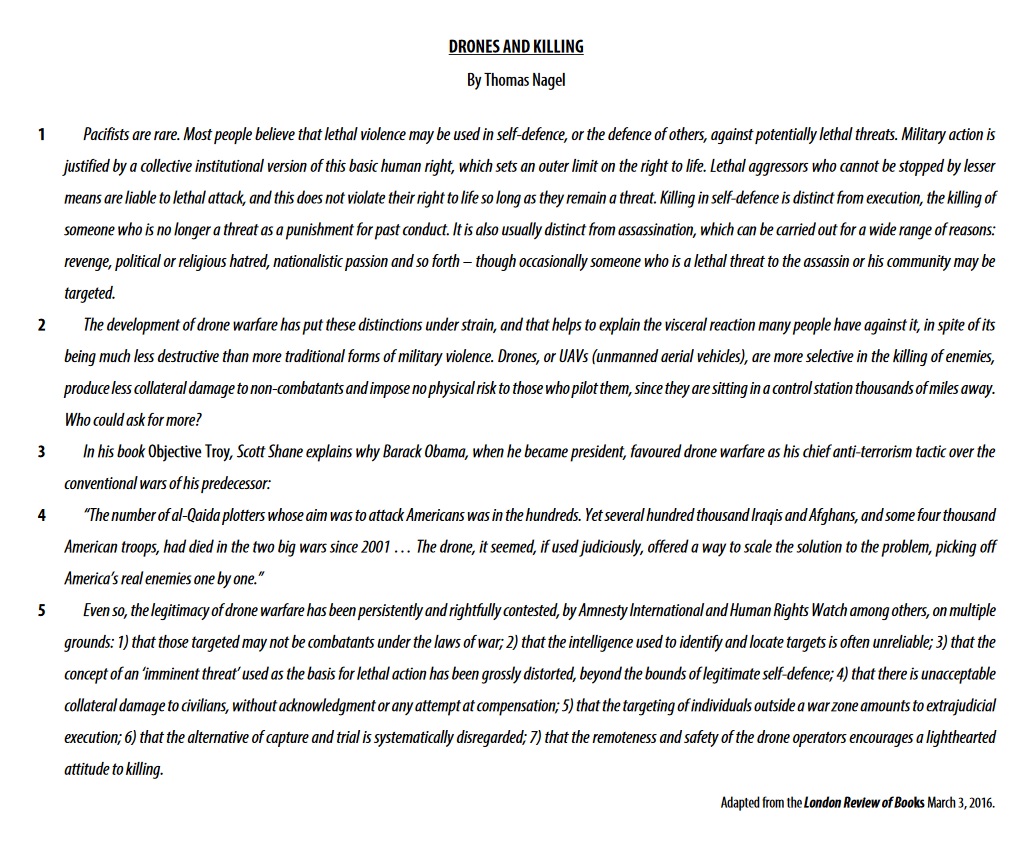Brazil must legalise drugs – its existing policy
just destroys lives
For decades, guns and imprisonment have
been the hallmarks of Brazil’s war against the
drug trafficking. But the only way to beat the
gangs is to stop creating criminals, says a top
Brazilian judge
“The war raging in Rocinha, Latin America’s
largest favela, has already been lost. Rooted
in a dispute between gangs for control of
drug trafficking, it has disrupted the daily
life of the community in Rio de Janeiro since
mid-September. With the sound of shots
coming from all sides, schools and shops are
constantly forced to close. Recently, a stray
bullet killed a Spanish tourist. The war is not
the only thing being lost.
For decades, Brazil has had the same
drug policy approach. Police, weapons and
numerous arrests. It does not take an expert to
conclude the obvious: the strategy has failed.
Drug trafficking and consumption have only
increased. […]
In a case still before the Brazilian supreme
court, I voted for decriminalising the possession
of marijuana for private consumption. […]
Drugs are an issue that has a profound
impact on the criminal justice system, and it is
legitimate for the supreme court to participate
in the public debate. So here are the reasons
for my views.
First, drugs are bad and it is therefore the
role of the state and society to discourage
consumption, treat dependents and repress
trafficking. The rationale behind legalisation is
rooted in the belief that it will help in achieving
these goals.
Second, the war on drugs has failed. Since
the 1970s, under the influence and leadership
of the US, the world has tackled this problem
with the use of police forces, armies, and
armaments. The tragic reality is that 40 years,
billions of dollars, hundreds of thousands of
prisoners and thousands of deaths later, things
are worse. At least in countries like Brazil.
Third, as the American economist
Milton Friedman argued, the only result of
criminalisation is ensuring the trafficker’s
monopoly.
With these points in mind, what would
legalisation achieve?
In most countries in North America and
Europe, the greatest concern of the authorities
is users and the impact drugs have on their
lives and on society. These are all important
considerations. In Brazil, however, the
principal focus must be ending the dominance
drug dealers exercise over poor communities.
Gangs have become the main political and
economic power in thousands of modest
neighbourhoods in Brazil. This scenario
prevents a family of honest and hard-working
people from educating their children away
from the influence of criminal factions, who
intimidate, co-opt and exercise an unfair
advantage over any lawful activity. Crucially,
this power of trafficking comes from illegality.
Another benefit of legalisation would be to
prevent the mass incarceration of impoverished
young people with no criminal record who
are arrested for trafficking because they are
caught in possession of negligible amounts
of marijuana. A third of detainees in Brazil are
imprisoned for drug trafficking. Once arrested,
young prisoners will have to join one of the
factions that control the penitentiaries – and
on that day, they become dangerous.
[…]
We cannot be certain that a progressive
and cautious policy of decriminalisation
and legalisation will be successful. What
we can affirm is that the existing policy of
criminalisation has failed. We must take
chances; otherwise, we risk simply accepting
a terrible situation. As the Brazilian navigator
Amyr Klink said: “The worst shipwreck is not
setting off at all.”
Disponível em: <https://www.theguardian.com/global-development/2017/nov/15/brazil-must-legalise-drugs-existing-policy-destroys-lives-luis-roberto-barroso-supreme-court-judge> .
Acesso em: 14 nov. 2017.











